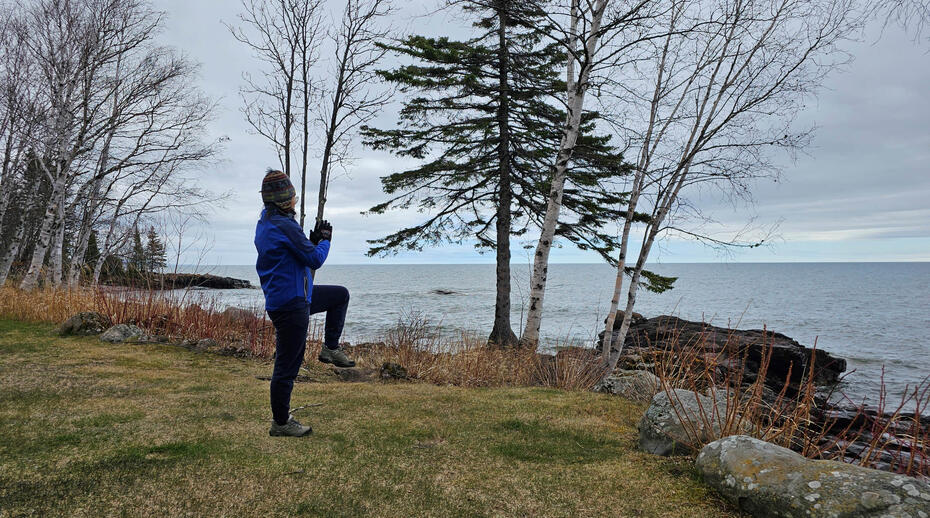Master Hongyi Lan, Ph.D.
Tai Chi is for Everyone.
Tai chi is a practice that involves a series of slow gentle movements, natural breathing, and a meditative state of mind. The earliest documented practice of Tai Chi was in Chen Village and Zhabao Village in Henan, China. Some say the origins of Tai Chi date back to the Western Han Dynasty (汉朝 206 BC to 24 AD). Others believe that Zhang Sanfeng, a Taoist monk who lived between 900 and 1300 CE, created Tai Chi. There are many different styles of Tai chi, including Chen (陈), Yang(杨), Wu/Hao (武/郝), Wu(吴), and Sun(孙). Most modern styles trace their development to these five traditional schools. Over the years, Tai Chi evolved with the philosophies of Daoism and Confucianism. By combining martial arts and meditative movements, Tai Chi promotes the balance and healing of both mind and body. Today this martial-art based mind-body exercise has gained more and more interest in the general public for its many health benefits.Tai Chi's benefits can be found at Tai Chi: What You Need to Know.


Slowness is the Essence
We are interested in giving all people of all backgrounds the physical and mental benefits that come from the practice of Tai chi.
The eastern /Asian emphasis on energy flow, breath, mindfulness, body awareness, and balance has potential to hugely impact an individual's mental health (lessening anxiety, increasing resilience, dealing with anger and trauma, stress management, depression prevention, discovery of joy in movement) and physical health (blood pressure and blood sugar lowering, weight management, core strengthening, improvement/challenging balance and coordination, many chronic health conditions). The slowness of the movement makes it uniquely suited to the needs and interests of people who are often dealing with and accumulating in their own bodies the physical effects of stress, anxiety, trauma and violence. Nature's capacity for homeostasis and balance is also Tai Chi's model for health. Excess and deficiency causes imbalance.
Start with Awareness
Mindfulness has generally been described as a way of paying attention to one’s thoughts without judgment. Most mindfulness practices involve some forms of meditation, breath work, body awareness, and mindful somatic movement. Mindfulness gives individuals the ability to go through life with self-awareness, the state of being and not doing. it is the ability to bring awareness to one’s present moment that can help change the thought process and life outcomes of individuals. Practice Tai Chi can help to bring awareness to your daily life, foster mental clarity and focus, reduce stress and anxiety.


About
Master Hongyi has practiced Tai Chi Chuan for more than 35 years. She first learned Yang (杨) style Tai Chi Chuan (traditional form) in an intensive Tai Chi Chuan seminar. She then learned Wu (吴) Style Tai Chi Chuan (traditional form) from Master Liang Shan, a history professor at Sun Yat-Sen University in Guangzhou, China. Master Liang's teacher was Master Yongqian Liu (刘永谦). Master Liu was a disciple of Wu style Tai Chi Master Gongzao Wu (吴公藻). Master Gongzao Wu's father, Jianquan Wu (吴鉴泉), was a famous teacher and founder of Wu(吴) style Tai Chi Chuan in late Imperial and early Republican China. In the past decade, she has been devoted to promoting wellness and active living in communities. She teaches several Tai Chi and Qi Gong Adult Wellness Programs locally in Minnesota.
2025 Spring/Summer Family Tai Chi class via Mounds View School Community Ed, Registration here
via Arden Hills Park & Rec, Registration here
Class Offered
Master Hongyi teaches foundation and advanced Tai Chi/Qi Gong classes. These classes will gradually improve participants' balance and strength, mental health Resilience (for anxiety and depression), and general health. They are low-impact exercises and beneficial for many chronic health conditions, such as joint conditions, respiratory conditions, diabetes, obesity, heart disease, depression, Parkinson's, and dementia. Master Hongyi invites you to experience an unique way to practice self-care in the community. She will guide you through a series of playful yet manageable Tai Chi/Qi Gong poses to explore slow somatic movements, breathing techniques, and relaxation. This mindful exercise provides a gentle, low-stress alternative for people looking for ways to regulate emotion/mood, manage stress, improve wellness, and stay active.The statements make in this website contain brief summaries of materials from scientific and medical journals for your information. It is not intended to substitute for the medical expertise and advice of your health care provider(s). We encourage you to discuss any decisions about treatment or care with your health care provider.
